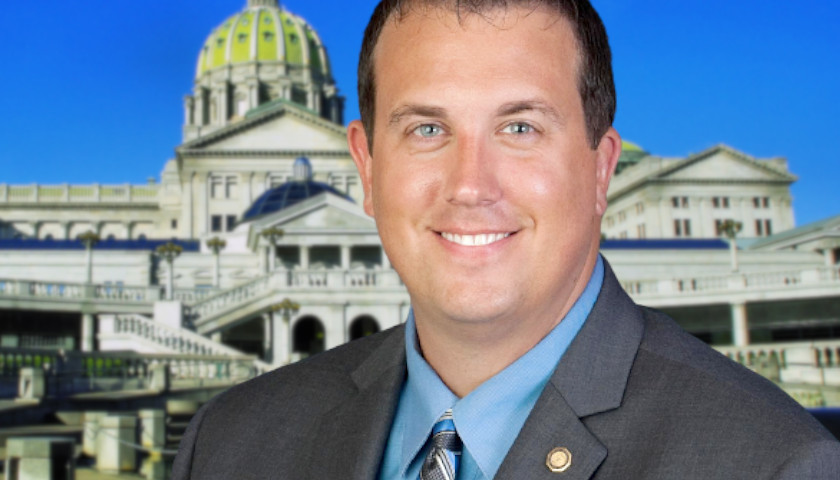Republicans lost their majority in the Pennsylvania House of Representatives last year. However, on Tuesday, GOP members voiced their hope that the state might curb state spending and lighten the tax burden with which the commonwealth saddles residents and businesses.
With that goal in mind, House Appropriations Committee Minority Chairman Seth Grove (R-York) led a roundtable discussion with several state fiscal policy experts.
Timothy Vermeer, a senior state tax-policy analyst at the Tax Foundation, underscored three primary economic challenges the Keystone State currently faces: Labor-force participation remains below its level before COVID-19 hit in early 2020, having trended downward since 2008; Pennsylvania’s working-age population is shrinking; and state tax policy disincentivizes individuals and companies from locating in the state.
He said it is “misleading” to merely observe that the state’s unemployment rate — now at 3.9 percent — has reached a historic low. That is because roughly 116,000 people quit looking for work since the 2020 recession.
Vermeer opined that restoring a robust labor force will require pro-business policy changes that should include reducing the state’s corporate net income tax (CNIT), something lawmakers set in motion last year, though the current 8.99-percent rate will only gradually fall to 4.99 percent over eight years. He said that if lawmakers can’t accelerate the rate reduction, they should at least refrain from pausing it, something they might be tempted to do because Pennsylvania is projected to run deficits over the next budget cycles.
“That was kind of a hard-fought gain,” he said of the scheduled tax decrease. “I’d hate to see that kind of tabled…. Hitting pause on the CNIT rate reductions, I think, would have an adverse effect as far as the commonwealth’s reputation goes and it would violate the sound tax policy principle of stability.”
Kurt Couchman, a senior fellow at Americans for Prosperity, also celebrated the CNIT reduction. He said that lowering that levy and further lowering Pennsylvanians’ tax burden will require budgetary reforms. Those, he said, should include “structural balance,” a requirement that the commonwealth’s expenditures and revenues would balance over the medium term rather than annually. He also urged lawmakers to adopt comprehensive legislative budgeting, which would entail legislators passing appropriations bills covering all state spending — including items paid for by special funds and federal funds — not merely the one-third covered by Pennsylvania’s budgeting process.
“Putting it all together lets you decide where to get the best value for the citizens of the commonwealth,” Couchman said.
Former State Representative Stephen Bloom, now vice president of the Harrisburg-based Commonwealth Foundation, and his colleague, senior vice president Nathan Benefield, pointed to distressing indices that they said make lower taxes and sounder fiscal policy all the more imperative. Especially worrying, they noted, is Pennsylvania’s failure to increase its population.
“The state is an out-migration state,” Benefield said. “We’ve been losing residents to other states for a long time, many decades, in fact…. We’re also an aging population; our residents are getting older and most of those people we are losing to other states are working-age.”
Committee members also heard from Josh Goodman, a communications officer with the Pew Charitable Trusts, who emphasized that Pennsylvania and other states are vulnerable to two major budgetary dangers: momentary shocks, particularly recessions, and structural problems that create continuous spending shortfalls.
Goodman said the Keystone State has wisely worked to prevent any fiscal disasters by allowing its Rainy Day Fund to build sufficiently so the commonwealth could operate for a full month on those reserves alone. He recommended that the state conduct budget “stress tests,” i.e., gauge the fiscal impacts of future recessions on state revenue, to ensure the fund stays at an appropriate level in the future.
– – –
Bradley Vasoli is managing editor of The Pennsylvania Daily Star. Follow Brad on Twitter at @BVasoli. Email tips to [email protected].
Photo “Seth Grove” by Pennsylvania House of Representatives Archives.





